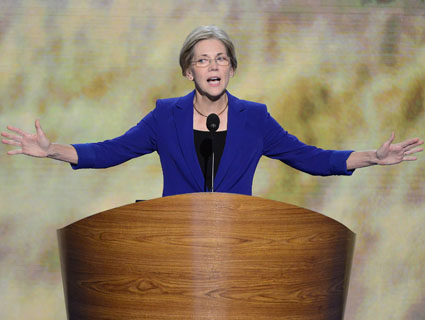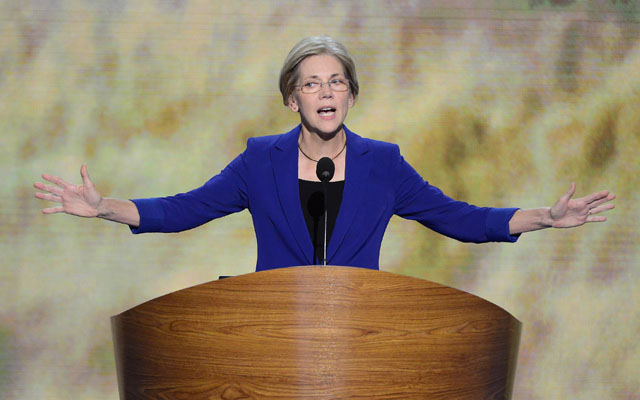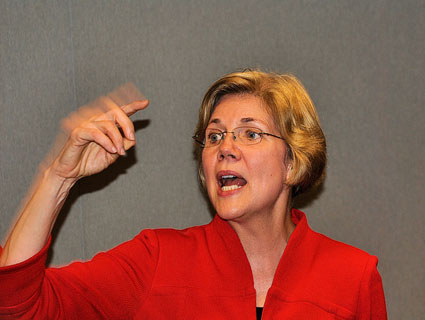On Thursday, the Senate held a hearing to ask federal regulators why they are not stopping banks from allowing money laundering. Sen. Elizabeth Warren (D-Mass.) was the highlight of the show, slamming a Treasury official who refused to weigh in on whether the banks should face more severe penalties.
In December, the giant international bank HSBC was fined $1.9 billion for illegally allowing millions in Mexican drug trafficking money to be laundered through its accounts. But it’s not just HSBC—this is a systemic problem. Ten banks have been penalized in recent years for failure to comply with anti-money laundering rules. The Senate banking committee held the hearing in order to interrogate regulators at the Federal Reserve, Treasury Department, and the Office of the Comptroller of the Currency about why they are not doing more to stop these kinds of shenanigans.
All of the regulators said they were working on improving regulations and enforcement and protested that it was up to the Department of Justice—not them—to decide whether prosecution was appropriate. (The Justice Department did not have a witness at the hearing.) They were reluctant to weigh in on whether they thought HSBC should have faced trial, even though they consult closely with the DOJ on bank activities. That infuriated Warren:
The US government takes money laundering very seriously for a good reason. And it puts strong penalties in place… It’s possible to shut down a bank… Individuals can be banned from ever participating in financial services again. And people can be sent to prison. in December, HSBC admitted to… laundering $881 million that we know of… They didn’t do it just one time… They did it over and over and over again… They were caught doing it, warned not to do it, and kept right on doing it. And evidently made profits doing it. Now, HSBC paid a fine, but no individual went to trial. No individual was banned from banking and there was no hearing to consider shutting down HSBC’s actives in the US…. You’re the experts on money laundering. I’d like your opinion. What does it take? How many billions of dollars do you have to launder for drug lords and how many sanctions do you have to violate before someone will consider shutting down a financial institution like this?
David Cohen, the undersecretary for terrorism and financial intelligence at Treasury, responded that his department had imposed on HSBC “the largest penalties we’ve imposed on any financial institution.”
Warren got annoyed. “I’m asking: what does it take to get you to move towards even a hearing to consider shutting down operations for money laundering?” she said.
Cohen kept evading and Warren got more annoyed. “I’m not hearing your opinion on this,” she said. “What does it take even to say, ‘here’s where the line is’? Draw a line, and if you cross that line you’re at risk for having the bank closed.”
Cohen said he had views, but couldn’t get into it.
“It’s somewhere beyond $881 million in drug money,” Warren concluded on her own, and went on to spell out the injustice of it all. “If you’re caught with an ounce of cocaine, you’re going to go to jail… But if you launder nearly a billion dollars for international cartels and violate sanctions you pay a fine and you go home and sleep in your own bed a night.”
“How would you explain this to your neighbor?” Sen. Jeff Merkley (D-Ore.) asked, noting that the fine slapped on HSBC amounted to about one percent of its profits over 10 years. “Does that really send a message?”
The regulators reiterated they were working on improving oversight and such, but admitted that they were not doing enough. Jerome Powell, who is on the board of governors at the Federal Reserve, conceded that big banks may not only be too big to to fail, but also too big to prosecute. “Until we finish [writing the rules implementing Dodd-Frank financial reform law] I couldn’t look [my neighbor] in the eye… I don’t think it’s fair.”















